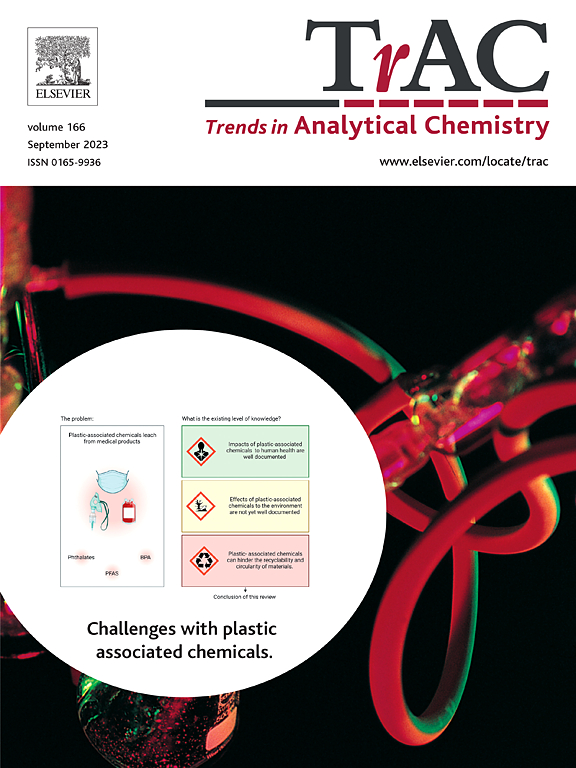Micro/nanoplastics in aquaponic systems: Sources, features and their effects on the immune system of fish
IF 11.8
1区 化学
Q1 CHEMISTRY, ANALYTICAL
引用次数: 0
Abstract
Plastic debris in aquatic ecosystems undergoes weathering and degradation, breaking down into micro/nanoplastics (MNPs) that inflict physical damage or chemical toxicity upon ingestion by fish. The fish immune system exerts a key role in responding to and defending against pathogens and adverse environments, making it essential to assess the impact of MNPs on the fish immune system. Fish ingest MNPs through respiration, food intake, and bioaccumulation, which can impose a toxic burden on immune organs such as the gut, liver, kidneys, and spleen. MNPs exert toxic effects by destroying immune cells and altering gene expression. Notably, MNPs may synergize with environmental pollutants, including heavy metals, persistent organic pollutants, and pathogens, leading to more severe immune damage in fish. Additionally, the limitations of current research and future research directions are discussed, alongside feasible mitigation strategies for reducing plastic pollution.

求助全文
约1分钟内获得全文
求助全文
来源期刊

Trends in Analytical Chemistry
化学-分析化学
CiteScore
20.00
自引率
4.60%
发文量
257
审稿时长
3.4 months
期刊介绍:
TrAC publishes succinct and critical overviews of recent advancements in analytical chemistry, designed to assist analytical chemists and other users of analytical techniques. These reviews offer excellent, up-to-date, and timely coverage of various topics within analytical chemistry. Encompassing areas such as analytical instrumentation, biomedical analysis, biomolecular analysis, biosensors, chemical analysis, chemometrics, clinical chemistry, drug discovery, environmental analysis and monitoring, food analysis, forensic science, laboratory automation, materials science, metabolomics, pesticide-residue analysis, pharmaceutical analysis, proteomics, surface science, and water analysis and monitoring, these critical reviews provide comprehensive insights for practitioners in the field.
 求助内容:
求助内容: 应助结果提醒方式:
应助结果提醒方式:


